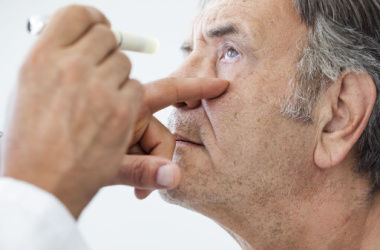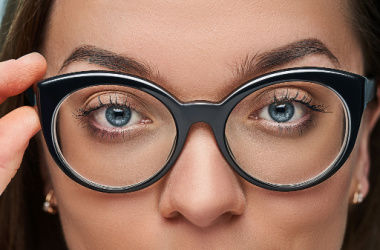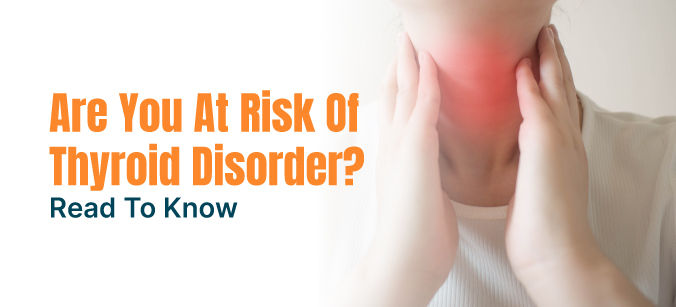General Health
Eye Donation: 6 Myths To Stay Away From If You Wish To Be A Donor
3 min read
By Apollo 24|7, Published on - 24 August 2022, Updated on - 15 December 2022
Share this article
0
13 likes

As per the World Health Organization (WHO) at least 2.2 billion people worldwide suffer from a near or distance vision impairment. The doctors reveal uncorrected refractive errors and cataracts are the main causes of vision loss and blindness. Blindness is a huge global health concern. However, according to WHO, retinal defects are the third most common cause of blindness, post cataracts and glaucoma. The majority of these disabilities are treatable, particularly through eye donation. Donated eyes can be used to restore vision in those suffering from corneal blindness (blindness due to cornea defect). While it is honourable to donate one's eyes, there are a lot of myths and misconceptions that cloud people's judgment and discourage them from making the decision. Let us address and debunk some of these myths.
MYTH1- Eyes of aged donors are not acceptable.
Fact- As part of eye donation, all donor's eyes are acceptable irrespective of the eye donor’s age, including the eyes of premature or still-born babies. There is no age limit for donating the eye. All one needs to do is bequeath his or her eyes by taking a simple pledge to donate the eyes after death. While taking a pledge during one's lifetime itself is a noble deed, it requires the support of relatives or friends to carry out the wishes of eye donation of the deceased.

MYTH2- Human eyes can be bought or sold.
Fact: Selling or buying human eyes is an illegal act. Therefore, human eyes cannot be bought or sold anywhere.
MYTH3- Eyes can be donated even by a living person.
Fact: While the kidneys or a part of the liver can be donated from one living person to another, eye donation can only be done after death. You may pledge to donate your eyes while you are alive, and encourage your family to fulfil your wishes later.
Myth4- I wear spectacles, I cannot donate eyes.
Fact: You can donate your eyes even if you have poor eyesight. Cataracts, poor eyesight, and age do not hinder eye donation. People who have undergone LASIK cannot be donors since the cornea has already been surgically manipulated. Furthermore, the shape of the corneal button obtained from such eyes might not be ideal.

Myth5- Any person can be an eye donor.
Fact: A person cannot be a donor if they died due to unknown causes, or suffered a central nervous system disease of unknown aetiology.
Donating eyes is entirely a generous act as one person's eyes can help in restoring vision in two people. Yet, just 5% of the demand for corneal transplants is satisfied. If you wish to donate eyes and have questions related to this noble deed,
Consult an Apollo Eye Specialist
Medically reviewed by Dr Sonia Bhatt.
General Health
Leave Comment
Recommended for you

General Health
10 Most Googled Questions On Thyroid Answered By An Apollo Expert
The thyroid gland is responsible for metabolism, growth, and several other important functions. Read to know how abnormal functioning of this gland can affect your overall well-being.

General Health
Simple Carbohydrates vs. Complex Carbohydrates: Knowing the Difference
Explore the contrast between simple and complex carbohydrates. Enhance your nutritional awareness for a balanced diet and better health.

General Health
How Does Chemotherapy Work?
The rapidly dividing cancerous cells outnumber healthy ones at a devastating rate. Chemotherapy is one such treatment modality that stops this lethal multiplication, besides radiation and surgery. Read along to know the role of chemotherapy in cancer treatment.
Subscribe
Sign up for our free Health Library Daily Newsletter
Get doctor-approved health tips, news, and more.
Visual Stories

Science-backed Home Remedies for Burns and Blisters
Tap to continue exploring
Recommended for you

General Health
10 Most Googled Questions On Thyroid Answered By An Apollo Expert
The thyroid gland is responsible for metabolism, growth, and several other important functions. Read to know how abnormal functioning of this gland can affect your overall well-being.

General Health
Simple Carbohydrates vs. Complex Carbohydrates: Knowing the Difference
Explore the contrast between simple and complex carbohydrates. Enhance your nutritional awareness for a balanced diet and better health.

General Health
How Does Chemotherapy Work?
The rapidly dividing cancerous cells outnumber healthy ones at a devastating rate. Chemotherapy is one such treatment modality that stops this lethal multiplication, besides radiation and surgery. Read along to know the role of chemotherapy in cancer treatment.